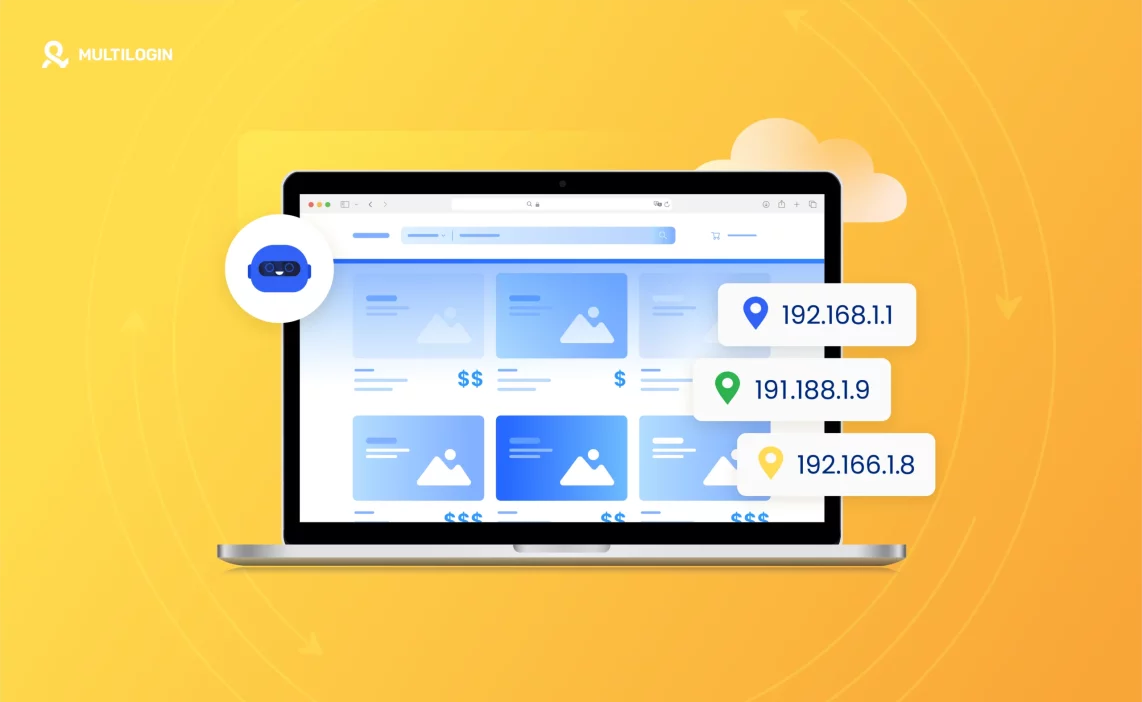If you’ve spent more than 10 minutes in the world of proxies, you’ve likely faced the same question:
Should I use ISP proxies or residential proxies?
At first glance, they seem similar. Both hide your IP. Both reduce bans. Both work with sneaker bots, scraping tools, and multi-account browsers.
But under the hood, there’s a massive difference in how they behave—and when you should use one over the other.
In this guide, we’ll compare residential vs ISP proxies side-by-side, break down real use cases, and help you decide which is best for your project or business.
What Are ISP Proxies?
ISP proxies (also called static residential proxies) are IP addresses provided by Internet Service Providers (like Comcast, AT&T, or Vodafone) but hosted on data center infrastructure.
So, they offer the best of both worlds:
- Speed of a data center
- Legitimacy of a residential IP
This combination makes them perfect for high-speed, low-detection tasks that require persistent identity.
How They Work:
- You’re assigned a static IP from an ISP range.
- It routes through a physical server (not a residential device).
- Because the IP is “real,” platforms treat it as a legitimate user.
What Are Residential Proxies?
Residential proxies route your connection through real devices—actual homeowners’ internet connections.
Each IP is tied to a physical location and an internet service provider. Unlike ISP proxies, these rotate frequently and mimic real user behavior in both network signature and connection flow.
How They Work:
- Your traffic is routed through a peer-to-peer or backconnect network.
- You’re borrowing IPs from real users across various regions.
- These proxies are more stealthy but often slower and less stable.
ISP vs Residential Proxies: Key Differences
Feature | ISP Proxies | Residential Proxies |
IP Source | Assigned by ISP, hosted in a data center | Real users’ IPs on real home devices |
Speed | Faster (data center infrastructure) | Slower (varies by user connection) |
Rotation | Usually static | Typically rotating (can change every request or session) |
Stability | High (perfect for long sessions) | Medium (depends on peer availability) |
Detection Risk | Low to moderate | Very low |
Cost | Medium to high | High (especially for high volume) |
Use Cases | Login bots, ads, automation, sneaker drops | Web scraping, ad verification, account creation, SEO tools |
When to Use ISP Proxies
Choose ISP proxies if you need:
- Fast and consistent speeds
- Static IPs that aren’t tied to a home network
- A blend of speed and legitimacy
- Low risk of bans during login or checkout
- To manage multiple browser sessions that require persistence
Popular use cases include:
- Social media automation
- Sneaker botting (Nike, Adidas)
- Ticket scalping
- Web testing and A/B experiments
- Managing accounts inside anti detect browsers like Multilogin
When to Use Residential Proxies
Choose residential proxies if:
- You’re scraping sites with advanced bot detection
- You need to rotate IPs to avoid triggering rate limits
- You want real human-like browsing behavior
- You’re doing ad verification in different regions
- You’re signing up for accounts at scale
Use cases:
- Market research
- Local SERP tracking
- Ad fraud detection
- Creating and managing bulk accounts
- Price intelligence on marketplaces
Residential Proxies vs ISP Proxies: Which One Gets Banned Less?
Residential proxies are less likely to get banned on sites that rely heavily on behavioral or IP-based detection (like Google, LinkedIn, or eCommerce platforms). Their traffic looks more organic because it mimics how a real user browses the internet.
However, ISP proxies are more stable for repeated logins and high-speed sessions, especially on platforms that rate-limit rotating IPs.
For long-term sessions, ISP proxies tend to hold up better. For scraping or short bursts of traffic across many IPs, residential wins.
Can You Use Both Together?
Absolutely.
If you’re managing multiple accounts or performing different types of automation, combining both types gives you flexibility:
- Use residential proxies for tasks that require rotation and stealth.
- Use ISP proxies for tasks that need stability and speed.
Even better: use a tool like Multilogin to manage both types in separate browser environments. Each profile can have its own proxy type, fingerprint, timezone, and cookies.
Why Multilogin Is the Smart Layer Between You and Your Proxies
No matter how good your proxies are, platforms today do more than just check IPs. They track:
- Browser fingerprints
- Device setups
- Cookie trails
- Login patterns
- Timezones and fonts
This is why Multilogin is essential.
Multilogin lets you:
- Assign ISP or residential proxies to each profile
- Spoof browser fingerprints with 100+ customizable settings
- Maintain full cookie and local storage isolation
- Run multiple accounts without linkability or bans
It’s the difference between hiding your IP… and hiding your entire identity.
Need a Fast Residential Proxy That Doesn’t Get You Banned?
Multilogin gives you built-in high-speed residential traffic—no extra setup needed.
Frequently Asked Questions About ISP Proxies vs Residential Proxies
No. ISP proxies are IPs from internet service providers hosted in a data center. Residential proxies are real IPs from home users.
Residential proxies are better for scraping. Their rotating structure and human-like behavior reduce detection.
ISP proxies are better if you need static, persistent IPs with low block rates. They perform better during logins or repeated actions.
Yes. You can use both ISP and residential proxies with Multilogin to manage browser profiles in complete isolation.
Residential proxies tend to cost more, especially with rotation or high bandwidth. ISP proxies are cheaper per session but not ideal for high-volume scraping.
Final Take: Choose Based on Purpose, Not Popularity
If you’re looking for speed and persistence, go with ISP proxies. If stealth, rotation, and low detection matter more, choose residential proxies.
Better yet—combine both inside an anti detect browser like Multilogin to unlock full flexibility.
With the right proxy + browser pairing, you can:
- Run marketing campaigns across multiple accounts
- Scrape SERPs without bans
- Manage social media or ad platforms without getting flagged
- Track ads, verify listings, and test geo-targeted content
- Automate logins and sessions with zero leaks


